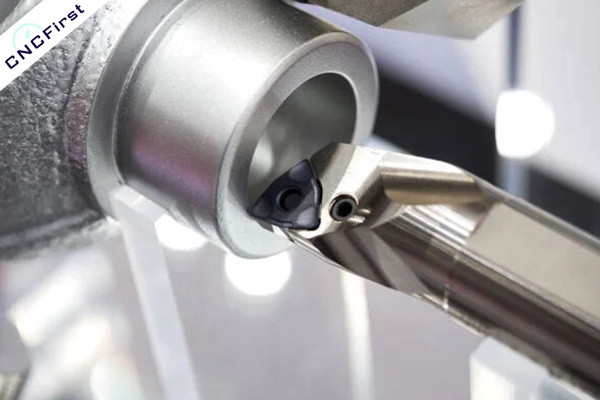Aluminum tube machining services in China
As a precision machined aluminum parts manufacturer, we provide aluminum tube machining services in China. Our experienced and highly skilled machinists can provide you with precision aluminum tubing at competitive prices. We will be able to provide you with a detailed description of the process involved and all of the specifications necessary for your specific type of tubing. Contact us today to learn more!

Machining capabilities for aluminum tubes
Aluminum tube machining is a process used to create aluminum tubing from a circular or elliptical shape. It involves cutting, turning, drilling machines to produce precise round or elliptical tubes.
Our service capabilities include precision CNC cutting, CNC turning and drilling services, tube laser cutting, surface treatment.
We provide various surface finishes, including anodizing, black oxide, powder coating and polishing.
Laser cutting is ideal for creating complex shapes in aluminum with a high degree of accuracy and repeatability. Aluminum can also be heat treated after being cut, which allows designers to create parts with specific properties such as hardness and strength depending on their application needs.
We specialize in producing custom aluminum tubes and aluminum sheets with tight tolerances, utilizing CNC machinery to ensure utmost quality. Our state-of-the-art equipment is capable of handling diameters from 0.125”up to 24”. Aluminum materials such as 6061, 6063 and 7075 are available for fabrication- all processed quickly and delivered on time.



Common Aluminum alloys for aluminum tubes machining
Aluminum tubes are a popular choice for projects and applications requiring lightweight yet strong materials. Made from various aluminum alloys, these pipes come in a variety of shapes and sizes to suit any need. Depending on the purpose of your project, there are several common aluminum alloys suitable for producing aluminum tubes.
Alloys: 2024, 3003, 5052, 6061, 7075
Temper: 0, T3, T4, T6, H14
Aluminum pipes can be suitable for aerospace, marine, medical, and other commercial applications that require weight, strength, and corrosion resistance.
Why Choose our aluminum tube Machining services?
Professional Team
Firstly, our team of experienced engineers have years of experience in the industry, which allows us to produce high-quality and precision aluminum tubes quickly and efficiently.
advanced machines
Additionally, we use state-of-the-art equipment and techniques to ensure that your tubes are accurately shaped and dimensioned every time.
24/7 services
Finally, we provide comprehensive customer service 24/7 so that you can always count on us to get the job done right.
Aluminum tube machining FAQs
Applications of aluminum tubes
There are a myriad of applications for aluminum pipes, and they can be used in a variety of different settings. Here are just a few:
-Building and construction: Aluminum pipes make great building materials because they’re lightweight, corrosion-resistant, and easy to work with. They also have good thermal properties, which means that they stay warm in cold weather and cool in hot weather.
-Water treatment: Aluminum tubes can be used to treat water using various filtration methods (such as activated carbon or ozone). This is useful for areas where quality water is scarce or expensive to purchase.
-Aerospace engineering: Aerospace engineers use aluminum tubing extensively in the design and construction of aircrafts, spacecrafts, engines, etc. Its light weight makes it ideal for these high-stress environments.
-Electronics manufacturing: Aluminum tubes are often used during the manufacturing process of electronic devices like smartphones and tablets because of their low weight and resistance to heat/cold damage.
How do you machine aluminium tubes?
Aluminium tube is a popular material used in many types of engineering and construction projects. It is lightweight yet strong, making it an ideal choice for components that need to be durable and light. But how do you machine aluminium tubes?
The process involves several steps, all of which must be done with care and precision to ensure a quality end product.
The first step in machining aluminium tubes is cutting them into the desired shape or size. This can be done with a variety of tools such as saws, drills, lathes, milling machines and more.
Once the aluminium tube has been cut down to size, it needs to be drilled so that holes can be created for fasteners or other components.
Drilling is performed using specialised drilling machines that are designed for metalworking applications.
Surface treatment is the last process, which includes blackening, anodizing, sandblasting, electroplating, and so on.
How do you laser cut aluminum tubes?
To begin, make sure your work area is clear and the tube is firmly secured in place by clamps.
Utilizing a laser cutter, adjust the power setting according to what type of metal you are cutting.
After this has been done, bring down the beam onto the tube and slowly trace along your desired pattern while keeping a steady pace.
As you move along, pay attention to any signs of heat warping or vibration from cutting too fast; if either occur then reduce speed accordingly.
Which is better: aluminum or stainless steel for tube machining?
When it comes to tube machining, the choice between aluminum and stainless steel can make a big difference in terms of quality, durability, and cost. Both materials offer unique advantages for different applications.
Aluminum is lightweight and less expensive than stainless steel but may be more prone to corrosion.
On the other hand, stainless steel is highly resistant to corrosion while offering superior strength and durability.
To decide which material is best for your specific needs, there are several factors to consider such as types of components you are producing, cost per unit part or production run, environmental conditions in which parts will be used or stored, expected life cycle of the product being produced and end use application.
For instance if the application requires higher resistance against water exposure then stainless steel might be a better choice compared to aluminum.
Ultimately each project requires careful consideration when deciding on the right material for tube machining operations.

